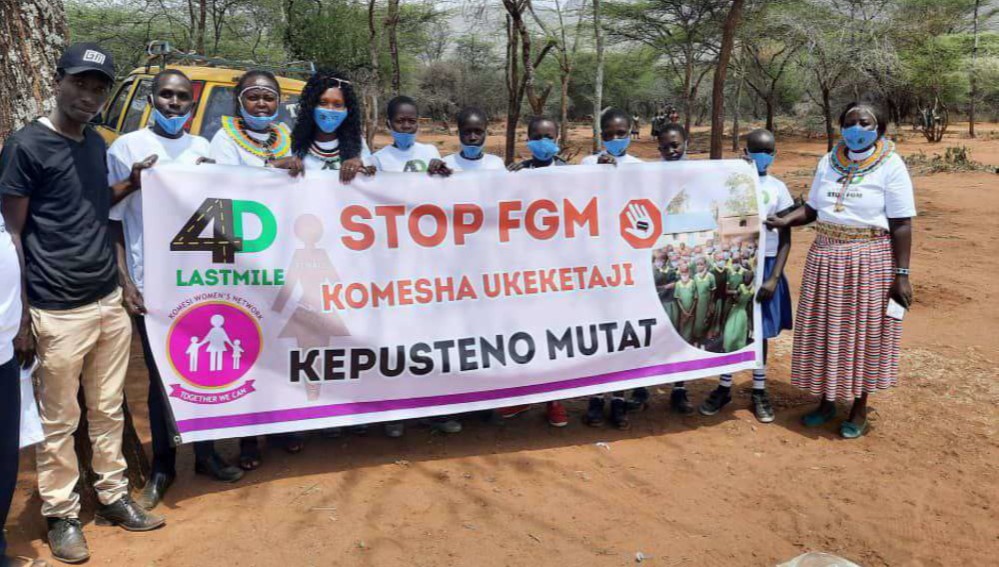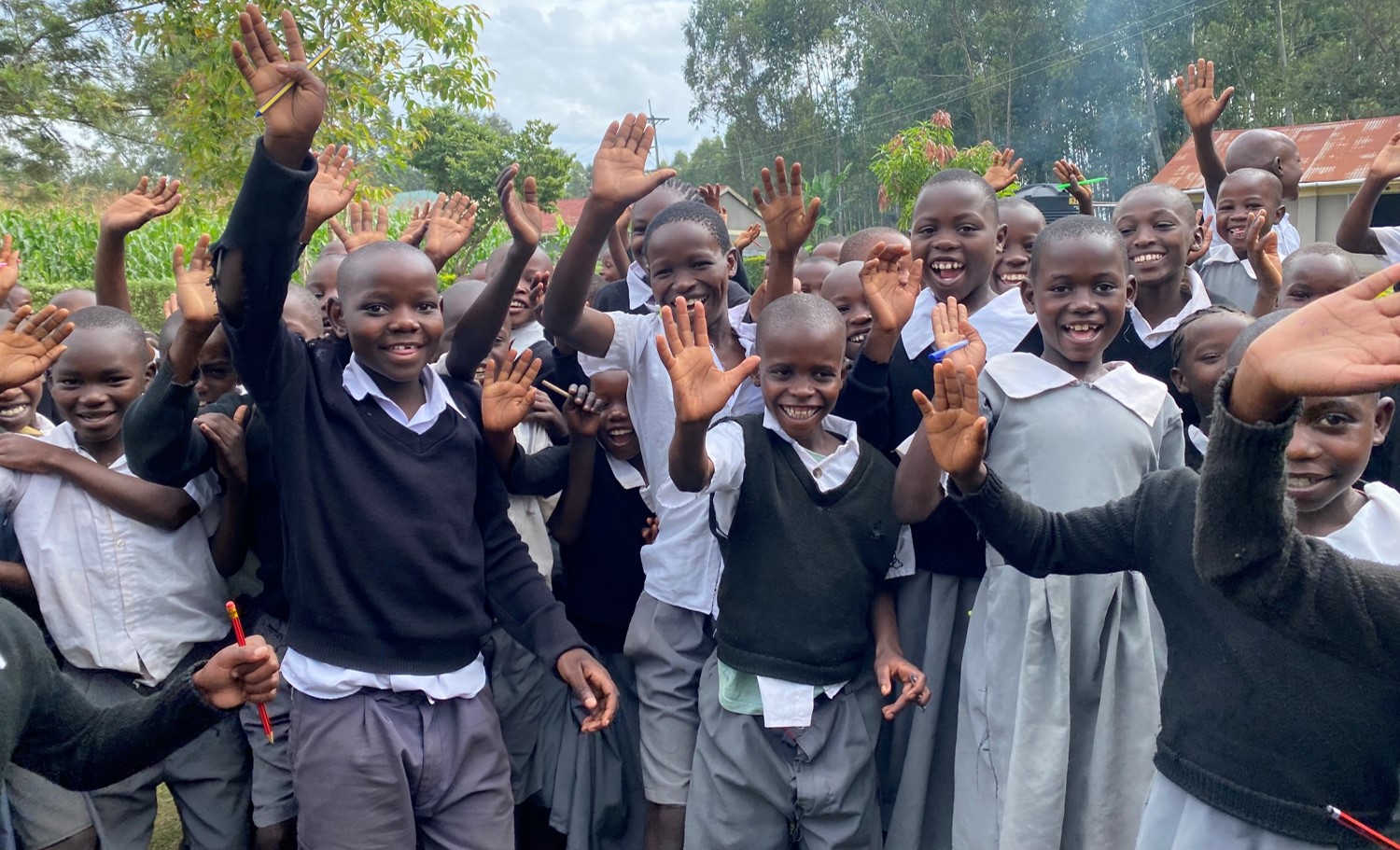
Mission
The mission of Last Mile 4D (LM4D) is to mobilize resources to ensure that girls and women everywhere, particularly in remote communities, can access information about their rights to health, safety, and freedom from gender-based violence.
Life Challenges of the Women Served
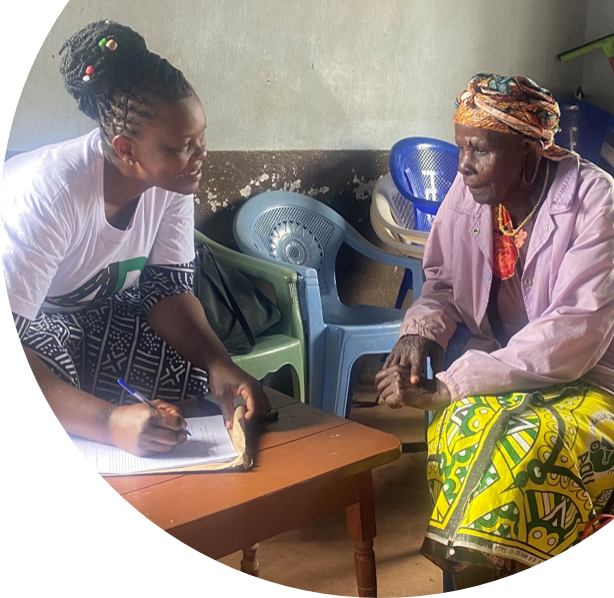 The barriers that constrain women in Kenya are multifaceted. Gender-based violence remains pervasive and Female Genital Mutilation/Cutting (FGM/C/C) has a national prevalence in Kenya of 21 percent among women and girls ages 15 – 49 years. This is an estimated 4 million women and girls. LM4D aims to prevent and eradicate FGM/C.
The barriers that constrain women in Kenya are multifaceted. Gender-based violence remains pervasive and Female Genital Mutilation/Cutting (FGM/C/C) has a national prevalence in Kenya of 21 percent among women and girls ages 15 – 49 years. This is an estimated 4 million women and girls. LM4D aims to prevent and eradicate FGM/C.
FGM/C is the intentional altering or injuring of the female genitals for non-medical reasons. Under international laws and treaties, FGM/C is illegal and is a violation of girls’ and women’s human rights. The World Health Organization (WHO) that 200 million women have undergone FGM/C globally – one female every 10 seconds, or 3 million girls a year, from diverse religious backgrounds. FGM/C results in significant physical and psychological harm including infections, hemorrhage, fistula, birth complications, sterility, and death. FGM/C is more prevalent in rural areas with low socioeconomic opportunities and high rates of illiteracy. In many African communities, FGM/C is often a prerequisite to childhood marriage and is the leading cause of school dropout, reducing chances for socioeconomic improvement.
Despite FGM/C being illegal, families and relatives persevere “cutting” girls in secret and isolation. FGM/C is a silent crime, and no one speaks about it in practicing communities. The girls are shunned if they refuse FGM/C or speak out against it.
The two most frequently cited reasons for FGM/C are religious practices and the belief that this is socially acceptable. Other reasons include believing that hygiene improves with FGM/C, preserving a girl or woman’s virginity, making the woman “marriageable,” and enhancing male sexual pleasure. In some cultures, FGM/C is regarded as a rite of passage into adulthood and considered a pre-requisite for marriage. Although there are no hygienic advantages or health benefits to FGM/C, practicing communities believe that women’s vaginas need to be cut – and women who have not undergone FGM/C are regarded as unhealthy, unclean, or unworthy. There is also an economic factor associated with FGM/C. Once a girl is cut and becomes marriageable, the family can receive a nice size dowry that helps the family out of poverty. The practice is also the livelihood for the women excisers/cutters.
The Project
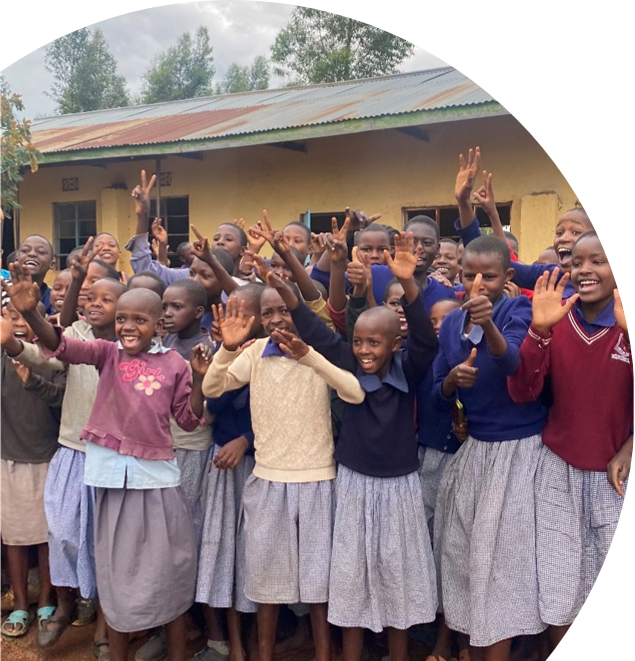 LastMile4D (LM4D) is concerned about FGM/C and its effect on the lives of girls in remote areas of Kenya. It has invented an innovative early warning system that provides real-time data on the girls and therefore can intervene almost immediately to prevent FGM/C.
LastMile4D (LM4D) is concerned about FGM/C and its effect on the lives of girls in remote areas of Kenya. It has invented an innovative early warning system that provides real-time data on the girls and therefore can intervene almost immediately to prevent FGM/C.
LM4D targets the most marginalized girls, ages 9 – 14 in remote hotbeds of FGM/C in Kenya. The primary goal of this project is to stop FGM/C for 1,600 girls ages 9 – 14 in the regions of Migori and West Pokot. LM4D uses a “three pillar approach” to achieve these goals:
- Leverage technology to assess girls at risk of FGM/C
- Deploy educational modules to sensitize girls, boys, and families against FGM/C
- Engage authorities to enforce the laws and protect the girl child by preventing FGM/C.
LM4D intersects with target audiences to provide comprehensive strategies to prevent and eradicate FGM/C. The program activities outlined below are collaborations with different stakeholders to conduct activities and services designed to prevent and eradicate this practice.
| Target Audience | Activity or Services |
| Community members (e.g., parents, tribal leaders, religious leaders) | · Conduct monthly meetings to increase the awareness of the negative impact of FGM/C and encourage the community to advocate on the girls’ behalf
· Sponsor activities on International Day of Zero Tolerance for FGM or other such known days to campaign against FGM/C |
| Men and boys | · Engage and educate men and boys in community centric activities |
| County government (e.g., police, child welfare services, health workers) | · Attend meetings organized by County government on FGM/C issues to keep them informed and obtain their support |
| Girls at-risk for FGM/C | · Visit the girls in schools and homes to monitor their safety
· Enroll girls in the program and monitor their safety in regular intervals · Provide safe housing/shelter to those at imminent danger of FGM/C |
| Authorities (e.g., police, child services) | · Partner with law enforcement to ensure their intervention and prevention when alerted about a possible FGM/C event |
To prevent FGM/C, LM4D uses data systems and community protocols to collect evidence-based data that will inform community outreach programs. Through these activities and programs, LM4D aims to not only change attitudes and behaviors for girls and their families, but also for the broader communities which unwittingly, through inaction, have tacitly provided consent for FGM/C.
The project involves the following stages:
- Train staff in the use of mobile, solar-powered technology – Vpack4Development (V4D). The V4D has proven to be a positive disruptor, merging technology, data collection, and analysis to inform community-centered programs. V4D will ensure uninterrupted access to data and educational modules for the communities selected.
- Rollout V4D and enroll 1,600 girls to collect real-time data, allowing for in-time intervention by field staff, supported by police and children services.
- Provide shelter for girls during the cutting season when FGM/C risk is the highest.
- Use 10 educational modules in weekly school sessions to inform the students about their rights, myths, and facts about FGM/C, the physical and psychological harms of FGM/C, national and international laws prohibiting it, and the role of government in keeping girls safe.
- Conduct bi-monthly educational modules about the harms of FGM/C. Engage community influencers, tribal chiefs, religious leaders, local government, and all other stakeholders. The objective is to obtain agreement and support that is essential for program success.
- Share data collection results to mobilize community efforts. As part of this effort, real-time data on the enrolled girls will be shared to inform the community at stakeholders’ community forums in the region. Data collected will document the effectiveness toward eradicating FGM/C.
- Mobilize the community behind the efforts, while continuing to collect, analyze, and communicate FGM/C data findings with local authorities for actions and interventions.
LM4D collaborates with every segment of the community, including women-led, community-based organizations (CBOs) who share a passion to eradicate FGM/C and all kinds of gender-based violence. By raising girls’ voices, integrating innovative teaching methodologies and online access to program information, communities are empowered to adopt a stake in eradicating FGM/C. To ensure that their work is culturally relevant, LM4D develops and disseminates educational modules in consultation with the KOMESI Women Network, Mwanzo Women Group in Migori and others to deliver messages in the local dialect and engages local authorities to enforce the laws that are intended to protect women and girls from harmful practices. LM4D also partners with CBOs familiar with the cultural nuances of FGM/C in the communities where they work.
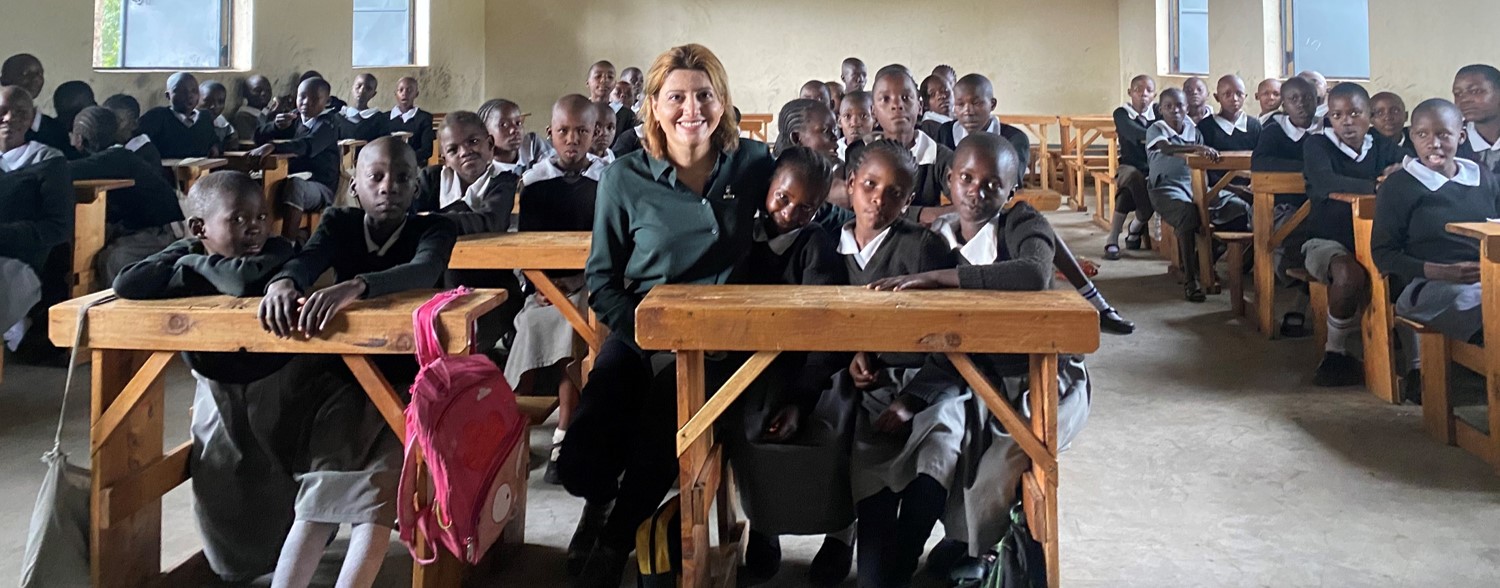
LM4D will select and enroll 1,600 girls ages of 9 – 14 in two counties that are hotbeds of FGM/C in Kenya and are characterized by diverse ethnic groups, norms, class structures, and educational outcomes among girls. These girls will be in primary and junior secondary schools. While the cutting is done by women in patriarchal societies, it is men who make the decision. Therefore, LM4D will engage men (mostly fathers of the girls) and 400 boys in these schools to be sensitized to the harms of FGM/C. Families and teachers of these children will also be engaged in sensitivity training.
LM4D promotes women and girls’ self-sufficiency by designing, advocating, and implementing evidence-based strategies that reduce the systemic gender and economic inequalities perpetuated by FGM/C. Stopping FGM/C for 1,600 girls will lead to higher graduation rates and more post-secondary opportunities, such as non-farm jobs that will benefit both the girls and their communities. A key component to reach self-sufficiency is keeping the girls in school so they can reach their maximum economic capacity. Some girls choose to attend vocational programs and others opt to attend junior secondary education institutions and beyond. Both of these options foster economic and social empowerment. Through the process, the girls and community acquire skills that empower them to speak out against FGM/C, and join and lead the conversation about eliminating it. They become advocates and champions of eradicating FGM/C, attending county and national government anti-FGM/C activities and promoting decisions that support girls’ rights to health and safety.
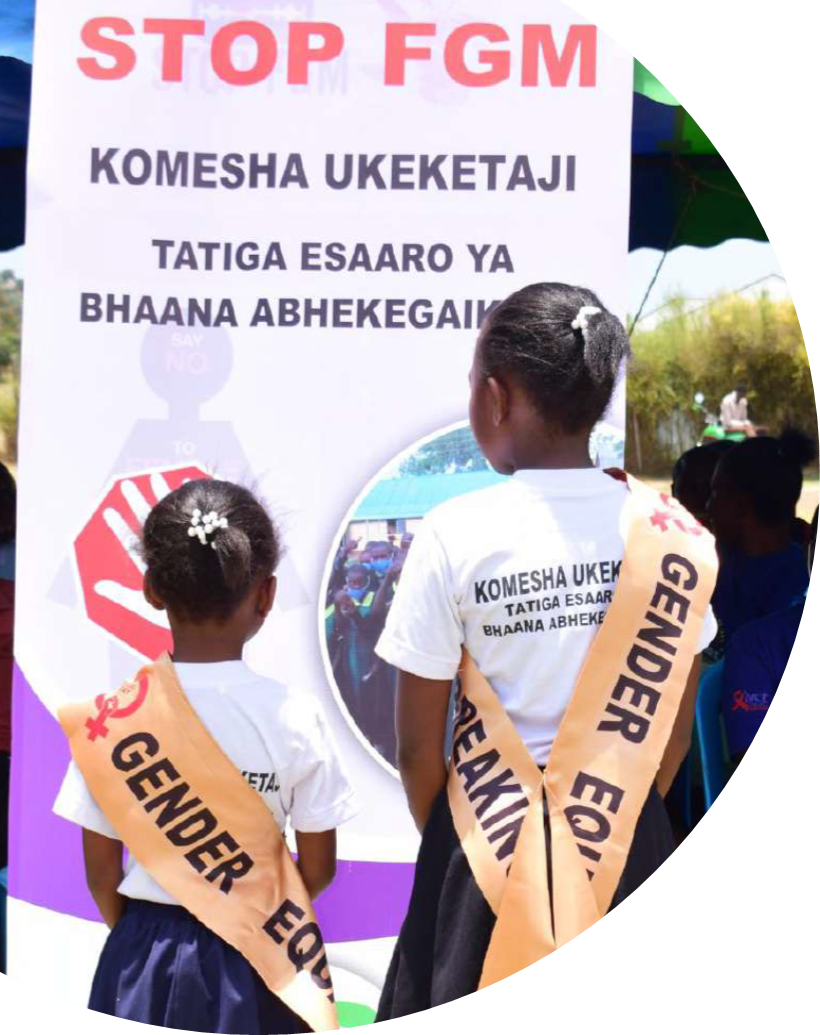 LM4D’s comprehensive approach aims to mitigate current strategies that are ineffective in eradicating FGM/C because they are siloed, isolated strategies that only emphasize awareness-raising campaigns and do not include the girls’ voices. By including their voices, LM4D is able to illustrate the girls’ fear of being cut, which mobilizes community leaders, who previously denied that FGM/C occurred. Additionally, there is no other integrated stakeholder approach that involves local law enforcement authorities to enforce existing anti-FGM/C laws.
LM4D’s comprehensive approach aims to mitigate current strategies that are ineffective in eradicating FGM/C because they are siloed, isolated strategies that only emphasize awareness-raising campaigns and do not include the girls’ voices. By including their voices, LM4D is able to illustrate the girls’ fear of being cut, which mobilizes community leaders, who previously denied that FGM/C occurred. Additionally, there is no other integrated stakeholder approach that involves local law enforcement authorities to enforce existing anti-FGM/C laws.
Studies show that families would often prefer to end FGM/C but are unwilling to subject their daughters to the social stigma of not undergoing it. This signals a demand for community-oriented participatory actions. The LM4D team found that efficient data collection using V4D, coupled with constant contact with girls at risk of FGM/C, allowed for intervention at critical points. Sheltering girls during the season when FGM/C risk is the highest (the December holidays) delayed and ultimately precluded their exposure to the practice. These strategies likely allowed most girls who otherwise would have been cut to remain in school for another year. The promising results indicate that community engaged programs with real-time monitoring benefit young girls and should be replicated.
FGM/C is a global problem. An innovative solution such as V4D has the potential to be adopted into multilateral organizations, such as UNICEF (United Nations Children’s Fund) and UNFPA (United Nations Population Fund) as well as national governments’ health and education planning as a part of achieving the United Nations’ Sustainable Development Goal (SDG) 5.3: eliminating child marriage and FGM. To this end, LM4D has direct contact with the Anti-FGM Board and other Kenyan national and local government stakeholders and has letters of support, as well as potentially partnering with UNICEF and UNFPA to sustainably scale V4D in Kenya and beyond.
Direct Impact: 1,600 girls, 400 boys; Indirect Impact: 3,000 family members
UN Sustainable Development Goals
![]()
![]()
![]()
Questions for Discussion
- How do you think the use of technology by LM4D can change the fight against FGM/C?
- Discuss how silence within the community unwittingly condones FGM/C.
- How do you think the elevation of girls’ voices influences the prevention of FGM/C?
How the Grant Will be Used
Together Women Rise’s grant of $48,000 will help fund the following:
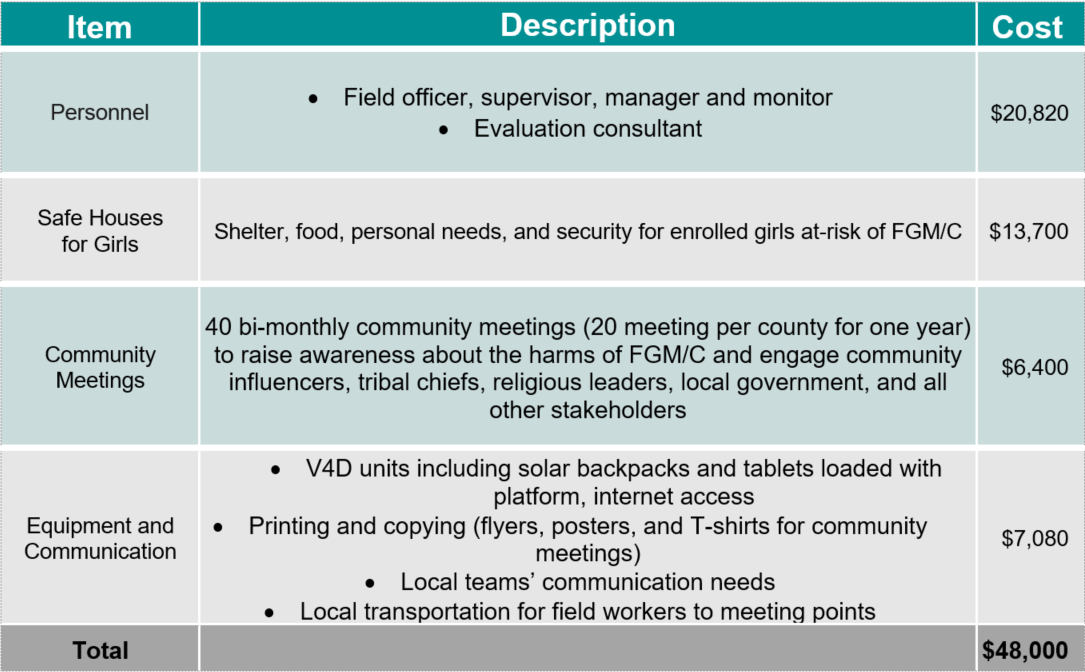
Why We Love This Project/Organization
V4D units offer a “high tech/high touch” solution that includes mobile technology (solar cells) and wireless laptops with online, real-time tech platform access with secure information. Girls at risk of FGM/C are recorded and an intervention identified in real time. The organization’s impressive pilot had no FGM/C identified during that time. The project also shelters girls during peak “cutting season” (December holidays) to help protect them. Men and boys are encouraged to become involved, and the organization partners with law enforcement – using multiple approaches to tackle the issue in an effort to effect long-term change.
Evidence of Success
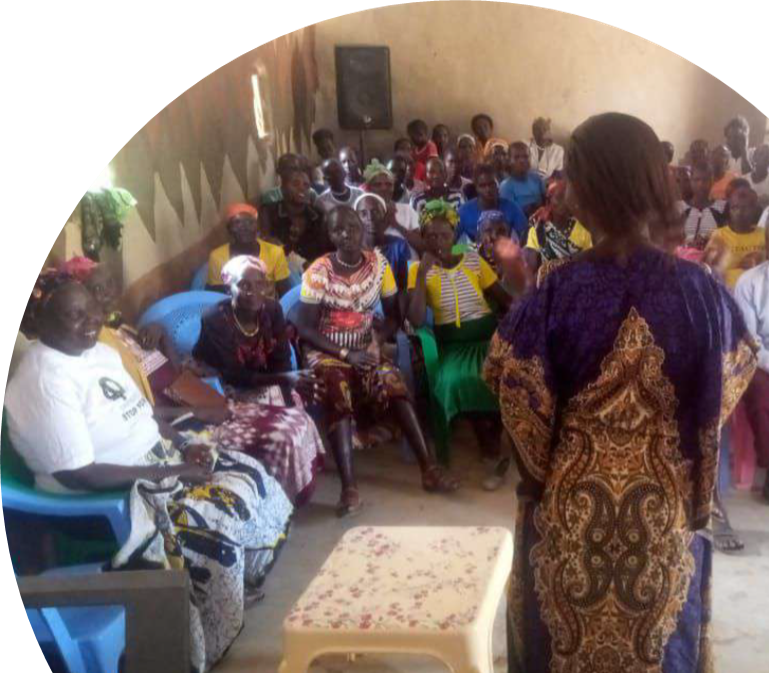 Last Mile4D has been recognized and valued for its contributions to end FGM/C. In 2019, along with Kenyan partner, ChildsLife, LM4D received a Canadian grant award to pilot the VPack4Develpment. LM4D’s president and CEO was recognized as one of the top 100 Johns Hopkins Alumni in Technology. In 2019, V4D was piloted in 10 Kenyan schools, monitoring 1,096 girls ages 9 – 17 over 18 months. Of those girls, 9 percent had already been cut; 60 percent said they were at risk of being cut. This information surprised key stakeholders and prompted them to act. V4D educational modules and community meetings were used to sensitize parents, government officials, and leaders. Thirty four percent of fathers and 71 percent of mothers of enrolled girls also were sensitized about FGM/C, After the program, 96 percent of parents signed declarations stating that they would not cut their daughters and 92 percent of parents agreed to advocate for the eradication of FGM/C. Of more than 4,000 parents, authorities, and leaders participating in the program, 89 percent attested to improving their knowledge and attitudes about FGM/C. Through the monitoring of enrolled girls with V4D and providing prevention, 99 percent of the girls demonstrated increased confidence to speak out about FGM/C, compared to 46 percent at the start of the program. Further, the proportion of girls who knew what to do if in danger of being cut increased from 53 percent to 98 percent after participating in project-sponsored activities, and 140 girls were sheltered. Over the course of the pilot, no participating uncut girls experienced FGM/C.
Last Mile4D has been recognized and valued for its contributions to end FGM/C. In 2019, along with Kenyan partner, ChildsLife, LM4D received a Canadian grant award to pilot the VPack4Develpment. LM4D’s president and CEO was recognized as one of the top 100 Johns Hopkins Alumni in Technology. In 2019, V4D was piloted in 10 Kenyan schools, monitoring 1,096 girls ages 9 – 17 over 18 months. Of those girls, 9 percent had already been cut; 60 percent said they were at risk of being cut. This information surprised key stakeholders and prompted them to act. V4D educational modules and community meetings were used to sensitize parents, government officials, and leaders. Thirty four percent of fathers and 71 percent of mothers of enrolled girls also were sensitized about FGM/C, After the program, 96 percent of parents signed declarations stating that they would not cut their daughters and 92 percent of parents agreed to advocate for the eradication of FGM/C. Of more than 4,000 parents, authorities, and leaders participating in the program, 89 percent attested to improving their knowledge and attitudes about FGM/C. Through the monitoring of enrolled girls with V4D and providing prevention, 99 percent of the girls demonstrated increased confidence to speak out about FGM/C, compared to 46 percent at the start of the program. Further, the proportion of girls who knew what to do if in danger of being cut increased from 53 percent to 98 percent after participating in project-sponsored activities, and 140 girls were sheltered. Over the course of the pilot, no participating uncut girls experienced FGM/C.
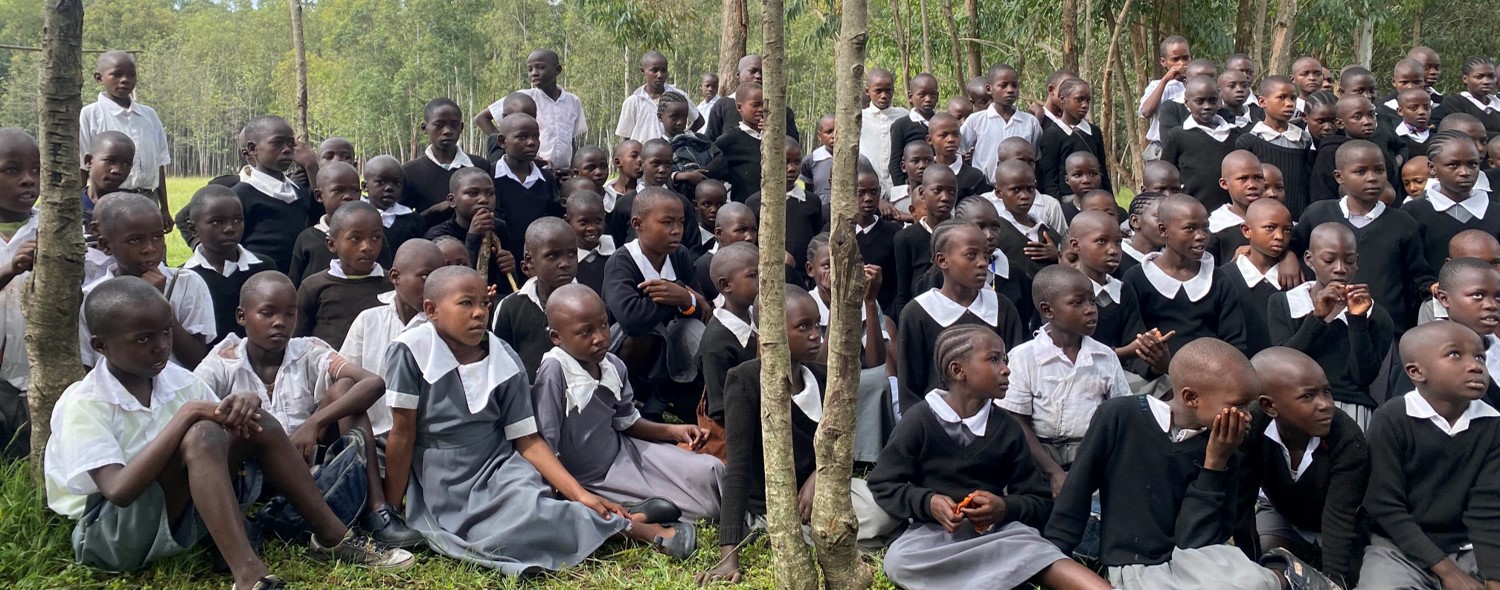
Voices of the Girls
“The program has helped me to escape the harmful practice and effects of FGM…such as early pregnancy, early marriage, school dropout and psychological effects such, bleeding and death and diseases such as fistula. I have told my parents and siblings about the harmful effects of FGM. Now my parents have rejected FGM and will not take me or my siblings for FGM.”
- Student at Kubweye Primary School
“The program has made my parents not to spend money on the FGM ceremony. The funds which would have been used to conduct the FGM ceremony was used towards paying my school fees.”
- Student at Kubweye Primary School
About the Organization
LM4D was founded in 2014 by Mahnaz M. Harrison. The organization achieves its milestones through an iterative process that focuses on women’s and girls’ rights to health and safety in rural or isolated communities. LM4D bundles innovative technology that includes an online platform and a tablet in a solar powered backpack – Vpack4Development (V4D). The goal of V4D is to eradicate FGM/C using innovative educational modules for field workers to create awareness about the dire consequences of the practice; conducting periodic, real-time monitoring by trained field workers, to assess FGM/C risk and need for immediate interventions; and create crisis intervention hotlines to rescue and shelter girls at risk of FGM/C in a safe environment.
Where They Work
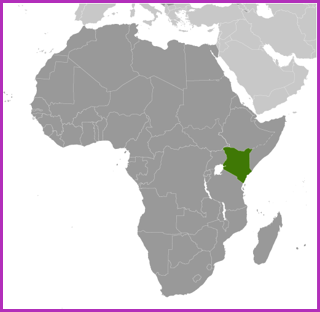
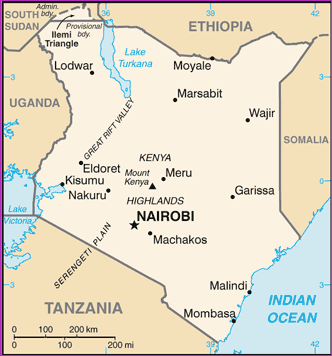
Kenya is in Eastern Africa, bordering the Indian Ocean, between Somalia and Tanzania. With a population of over 57 million, Kenya has experienced dramatic population growth since the mid-20th century as a result of its high birth rate and its declining mortality rate. Almost 40 percent of Kenyans are under the age of 15 (as of 2020) because of sustained high fertility, early marriage and childbearing, and an unmet need for family planning. Kenya’s persistent rapid population growth strains the labor market, social services, arable land, and natural resources.
Migori and West Pokot are two of Kenya’s 47 counties located in the western part of the country. Migori has an area of 2,586 square kilometers and a population of more than 1.1 million. West Pokot has an area of 8,418 square kilometers and a population of more than 620,000.
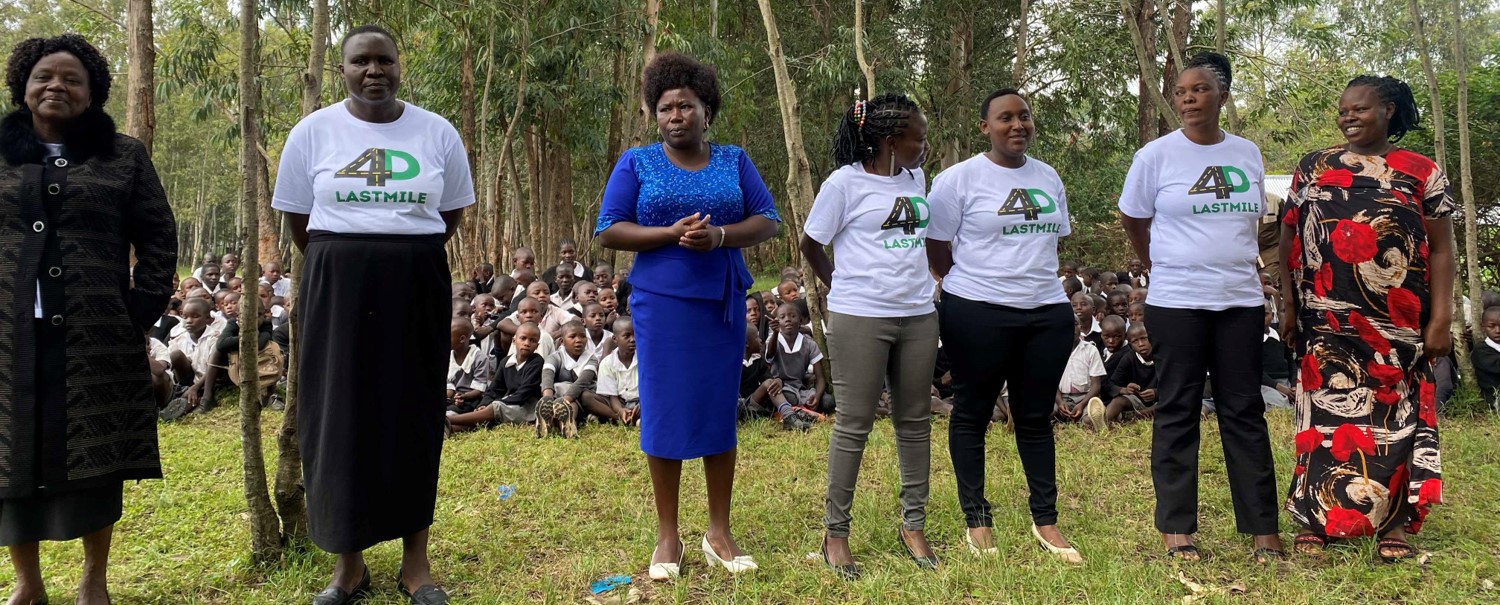
A closer look at leveraging technology to reach girls in remote communities
Technology can bring information and connect communities to remote areas across the globe. Access to education has proven to be vital for women and girls in remote areas. There is no better example of this innovation than the use of mobile technology to deliver learning programs and educational content. Mobile phones can provide these resources directly to girls’ phones, allowing them to continue to learn even when they can’t attend school in person. Mobile technology can also be used to connect girls with mentors, peers, and other support networks, boosting their confidence and helping them build their resilience.
In Guatemala, Digital Community Centers (DCCs) are providing electrical power, internet connectivity, and digital skills training to more than 2,000 Guatemalan Indigenous women in their native languages. In an 18-month period, the initiative has transferred management of these DCCs to local women, propelling their access, standing, and influence in decision-making, outreach and ultimate impact in their communities.
UNICEF is leading Reimagine Education, a global initiative on digital learning and skills, which aims to enable every child and young person – 3.5 billion by 2030 – to access world-class digital learning solutions that build the skills they need for the future.
Source Materials
https://www.usaid.gov/kenya/gender-equality-and-womens-empowerment
https://www.cia.gov/the-world-factbook/countries/kenya/
https://pulitzercenter.org/stories/female-genital-cutting-rise-during-covid-kenya
https://www.who.int/news-room/fact-sheets/detail/female-genital-mutilation
https://maarifa.cog.go.ke/index.php/node/825
https://www.oecd-forum.org/posts/innovation-a-route-to-prosperity-for-africa-s-girls
